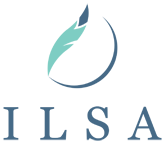ILSA's 3rd Annual Gathering - Ethics of Belonging: Protocols, Pedagogies, Land and Stories - was another amazing success! Thank you to the Stó:lō Nation community members who helped make the gathering a wonderful learning experience!
ILSA's 3rd annual gathering brought together scholars, knowledge-keepers, artists, and community members to generate new conversations about protocols, pedagogies, land, and stories from a wide variety of perspectives, including tribally-centred, inter-tribal, pan-national, urban/suburban, and trans-Indigenous, at ILSA’s third annual gathering, this time taking place on the unceded, traditional territories of the Stó:lō peoples in the Stó:lō Teaching Longhouse in Chilliwack, B.C.
In a 2007 essay, Stó:lō historian Dr. Albert Sonny Naxaxalhts’i McHalsie shares a Halq’emélem statement that is often interpreted as an assertion of Aboriginal rights and title: “S’ólh Téméxw te ikw’elo. Xolhmet te mekw’stam it kwelat,” which can be translated as “This is our Land. We have to take care of everything that belongs to us” (85). As McHalsie reflects on the boundaries of his territory, he follows the protocols of his community, consulting his elders to uncover teachings embedded in the Halq’emélem language and in Stó:lō stories. Through these protocols, he replaces Western concepts of ownership with Stó:lō understandings of personal connection to place, sharing stories that explicate multiple ways of reading the land around him. McHalsie concludes that the statement is not merely an assertion of what belongs to Stó:lō but of belonging, insisting that as his people take care of their territory they necessarily have to take care of stories and understandings of the world embedded within wider kinship relations—between communities, nations, cultures, languages, as well as with the other-than-human.
Inspired by McHalsie’s words, Ethics of Belonging: Protocols, Pedagogies, Land and Stories asked participants to consider ways in which our scholarship, activism, and creative work cares for stories and centres Indigenous perspectives. In what ways can this care and attention honour Indigenous protocols and shape our pedagogies? How might writers or artists who live distanced or alienated from home territories practice such ethics? How might we consider Indigenous cultural production in cyberspace as linked to land? What does it mean to read texts through treaty documents, the history of colonization, or stories that emerge from land-theft and dislocation? What new traditions are Indigenous people, especially those who live in the city, creating?
Other topics include:
“Taking care of everything that belongs to us,” land claims and cultural repatriation
Stó:lō narrative arts and Stó:lō literary history, present, and future
Politics of belonging and kinship relations
Land, ecological responsibility, and environmental ethics
Land-based solidarities, urban Indigenous communities, and the literary arts
Literary methods and Indigenous protocols
The politics of protocols—gender and surveillance
Two-Spirit and queer Indigenous critical ecologies
Land, stories, and narrative arts as praxis
Autonomy and alliance in unceded traditional territories
Community-based participatory research, pedagogies, and literary studies
Alliances among Indigenous and diasporic artists
Mediations of orality and Indigenous material cultures
Collaborative creation and multi-media
Artistic expressions of sovereignty and self-determination
Responsibility, community, and artistic expression
Community-specific Indigenous knowledge and ethics in scholarship or art methodologies and practices in Indigenous literary studies to serve the needs of Indigenous communities
Thank you for your continued support.
The Indigenous Literary Studies Association Council 2016-2017
- Deanna Reder, President (dhr@sfu.ca)
- Jesse Archibald-Barber, President Elect (jbarber@fnuniv.ca)
- Sophie McCall, Secretary (smccall@sfu.ca)
- June Scudeler, Treasurer (june.scudeler@gmail.com)
- Sarah Henzi, Early Career Member (sal.henzi@umontreal.ca)
- Angela Semple, Graduate Member (angelasemple@trentu.ca)
- Sam McKegney, Past President (sam.mckegney@queensu.ca)
- Email: ilsa@sfu.ca

